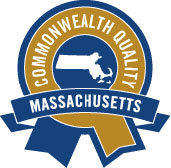Value-Added Dairy Products
Introduction
Value-added describes what happens when you take a basic product and increase the value of that product and usually the price by adding extras in the manufacturing process, or by tacking on extra products and/or services.
As a dairy producer, you can add extra value to your milk by processing and marketing your own products, such as cheeses, bottled milk, yogurt, ice cream or butter. The Commonwealth consumer will pay a premium to purchase products that are locally produced. Certifications such as Organic or Animal Welfare Approved also enhance the market appeal of your product. Many consumers are very interested in what happens on the farm.
Key Points
When considering the production and marketing of value-added dairy products, you have to take into consideration the capital outlay, time commitment, market share and the fact that your business may not make a profit in the first five years. Some important questions to ask yourself:
- What product do you intend to sell?
- Who is your target audience and how will I market the product?
- Are my location(s) convenient to the consumer?
- What is the profit potential of the product?
- How much will the consumer pay for the product?
- How will I demonstrate the quality of the product?
Value-added products can help your farm become more viable, more visible to the public and open up new markets but there are more risks involved when selling value-added versus marketing directly to your local milk cooperative.
Farmers can take classes, or attend seminars on making the products that they are interested in marketing. Food technologists can also offer guidance on the processes and production of milk products.
The Massachusetts Department of Agriculture https://www.mass.gov/orgs/massachusetts-department-of-agricultural-resources offers Agricultural Business Training Workshops from January through March that addresses start-up concepts, such as marketing, financing and grant sources.
The key to the success of value-added products is to market a high quality product that is reasonably priced and available in a convenient location for the consumer to purchase. You must deliver your product consistently and have sufficient supplies to meet the demand. Remember that the consumer will react negatively to your product if you do not maintain your quality standards and/or timely deliver sufficient supplies.
A new certification being offered to growers, producers, harvesters and processors is the Commonwealth Quality brand. This brand was designed by the Massachusetts Department of Agricultural Resources and serves to identify locally sourced products that are grown, harvested and processed right here in Massachusetts using practices that are safe, sustainable and don’t harm the environment. Only Massachusetts producers can participate in this program. Further information on this program can be found at this source.
Regulations are a critical piece in the planning stages of processing your own product. Contact your state regulatory agencies early in the planning process to help insure that your facility and products meet health and safety requirements.
Summary
Through the addition of value-added products to your farm this can be a good way to increase your farm income, give your farm more visibility and help to expand to new markets. Careful business planning and adhering to state and federal regulations will also ensure the success of your new venture.
Note Massachusetts is a national leader in the growing local foods movement.
Note Massachusetts ranks first in the nation for the average value of direct market sales per farm. The state has over 120 farmers markets, up from approximately 85 in 1990, and more than any other New England state.

Resources
Workshops/Certifications
Massachusetts Department of Agricultural Resources https://www.mass.gov/orgs/massachusetts-department-of-agricultural-resources
Animal Welfare Approved
1007 Queen Street
Alexandria, VA 22314
(202) 546-5292
https://awionline.org/content/history-awis-leadership-establishing-and-upholding-farm-animal-standards
Cheese Information:
http://www.cheesesociety.org
The American Cheese Society website listing conferences, articles, and their latest newsletter. http://www.cheesereporter.com
New England Cheesemaking Supply Company
P.O. Box 85
Ashfield, MA 01330
(413) 628–3808; Fax: (413) 628–4061
http://www.cheesemaking.com
Regulations:
Massachusetts Department of Agricultural Resources
Regulations on Farm Products https://www.mass.gov/orgs/massachusetts-department-of-agricultural-resources
Massachusetts Department of Public Health Food Protection Program
Food & Food Processing Regulations
https://www.mass.gov/lists/food-protection-program-regulations
Consumer Affairs
Chapter 93A
http://www.malegislature.gov/Laws/GeneralLaws/PartI/TitleXV/Chapter93a
Reference:
Gegner, E. L. Value-Added Dairy Options.
National Sustainable Agriculture Information Service.
For more information visit the UMass Extension Crops, Dairy, Livestock & Equine Program
Factsheets in this series were prepared by, Masoud Hashemi, Stephen Herbert, Carrie Chickering-Sears, Sarah Weis, Carlos Gradil, Steve Purdy, Mark Huyler, and Randy Prostak, in collaboration with Jacqui Carlevale.
This publication has been funded in part by the Massachusetts Department of Agricultural Resources and the Massachusetts Farm Bureau Federation, Inc.